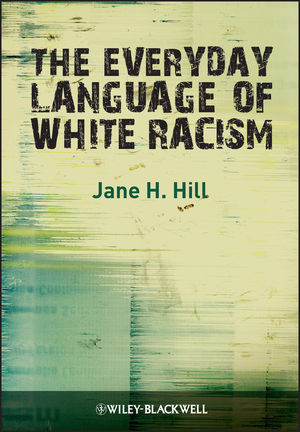The Everyday Language of White RacismISBN: 978-1-4051-8453-3
Paperback
240 pages
October 2008, Wiley-Blackwell
 This is a Print-on-Demand title. It will be printed specifically to fill your order. Please allow an additional 10-15 days delivery time. The book is not returnable.
|
||||||
"Resonating far beyond its focus on the US, this is a lucid, compelling, committed and highly original account of the fundamental aspects of routine language that help racism thrive amidst its everyday denial."
–Professor Ben Rampton, King's College London
"The Everyday Language of White Racism is an extremely
important book. Jane Hill raises readers' awareness for the
potential danger which confronts all of us; i.e. that 'race' and
racially based practices which are frequently expressed in indirect
and covert ways would become part of common sense and thus
essentialized. This is also a very timely book because it points us
to the many instances in everyday life where discrimination still
occurs and proposes ways how to challenge social exclusion."
–Ruth Wodak, Distinguished Professor of Discourse
Studies, Lancaster University
"Hill's academic credentials give her the authority to write
this disquieting book. The care she uses to make her case will
compel even skeptics to reconsider the way they speak about other
people."
–Otto Santa Ana, University of California, Los
Angeles
"For the many Americans who believe that racism is on the
decline in the contemporary United States, The Everyday Language of
White Racism will be both eye-opening and thought-provoking.
Challenging the commonsense belief that racism is rooted in
individual, intentional feelings of hatred or prejudice, Jane Hill
shows that racism is produced through language in which racist
stereotypes circulate, whether deliberately, unwittingly, or
somewhere in between. Hill’s magisterial command of a wide
range of scholarship provides rich theoretical and political
context for her acute analyses of racist language in the media,
public discourse, and private talk. The result is an engaging and
important discussion of the enduring yet often invisible presence
of racism in American daily life."
–Mary Bucholtz, Department of Linguistics, University
of California, Santa Barbara



